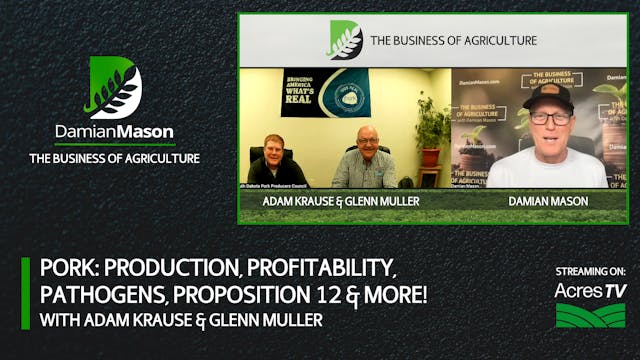Is the Migrant Crisis a Crisis for Agriculture or a Net Benefit? | Damian Mason
Food Focus
•
35m
A full three quarters of farmworkers in the U.S. are migrants and many are here illegally. Add in food service, meat processing, and the ancillary industries that feed the food business and you’re talking about a LOT of foreign-born workers who work to put food on America’s table. Is the migrant crisis we’re witnessing on our nation’s southern border a crisis for Ag? Or is it a net benefit? The upside to having several million people walking into our country: Possible new pool of workers (unless they’re economically un- incentivized!), new customers, and possible economic contributors (in the longer term). The downside: Criminality and a drain on resources. American Agriculture has — for a very long time — imported foreign-born workers to harvest the produce, milk the cows, and cut the meat. Is it what’s happening now different? More importantly, is the current situation a crisis or a benefit for Ag?
Sponsored by:
Pattern Ag https://www.pattern.ag/
Redox Bio-Nutrients https://www.redoxgrows.com/
Truterra https://www.truterraag.com/
Up Next in Food Focus
-
Breeding Season + Beef Insight | Buzz...
As a fall calving herd, we AI breed our cows and place embryos in late November. See a snippet of this process and also learn more about what shoppers consider "important" when it comes to purchasing beef.
-
Sugar Cookies and Gingerbread Houses!...
Bake the perfect frosted sugar cookies for Santa this holiday season! Whip up a batch of these soft and buttery cookies, and let the little ones unleash their creativity as they decorate with colorful sprinkles, icing, holiday cheer, and, of course, eyeballs! Simple, sweet, and full of fun, these...
-
Pork: Production, Profitability, Path...
Currently, pork profitability (or lack thereof) has certain observers comparing the industry to the late ’90’s when pork was in turmoil. It was that era, in fact, that set the stage for today’s (mostly) vertically integrated hog production model using contact grower farmers. Adam Krause, a contra...



